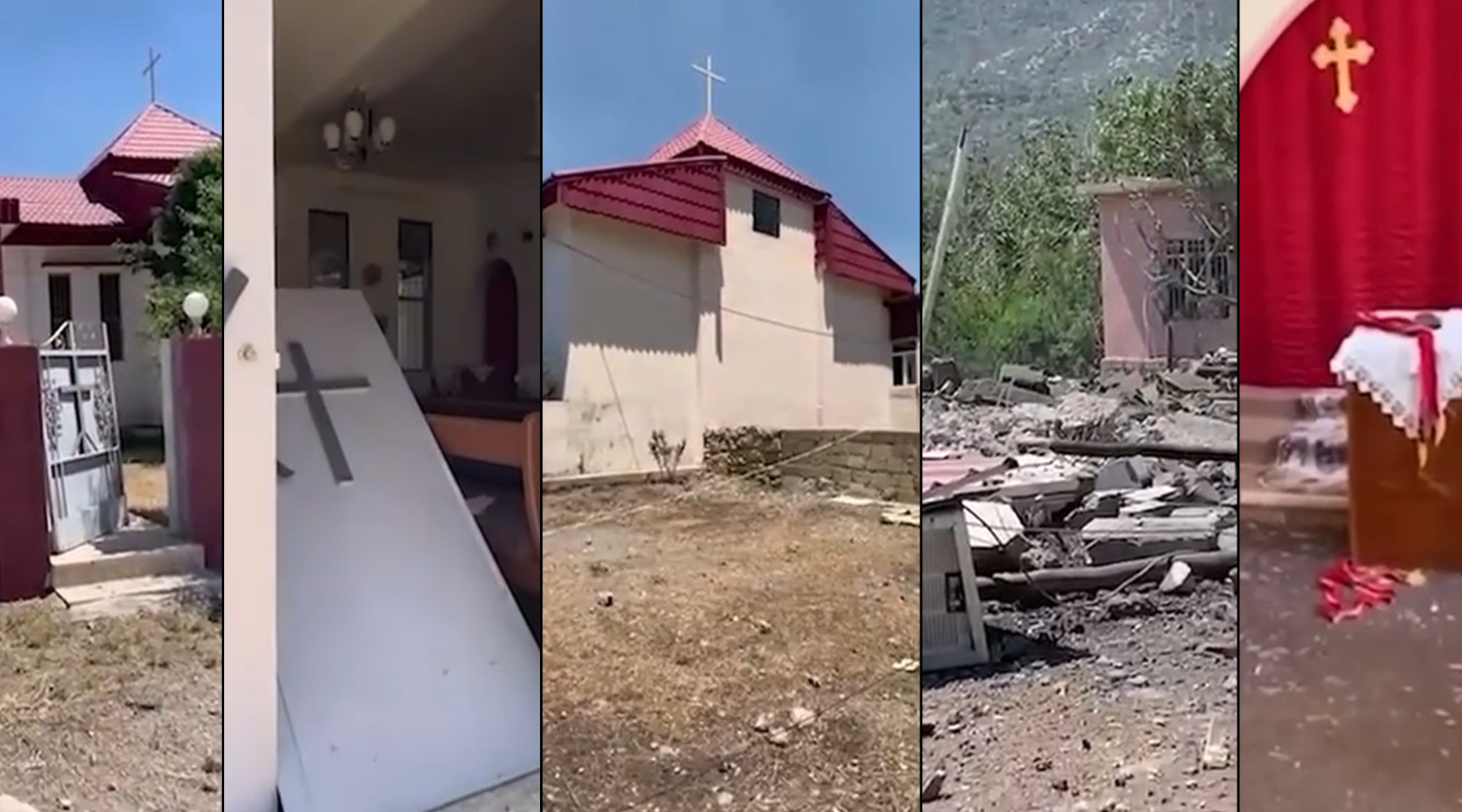“Turkish forces surrounded our village several nights ago. They carried out a landing in the area and violent clashes took place,” Daoud Youhanna, who lives in the village of Miska within the borders of Amedi (Amadiya) district in Dohuk Northern Province, told KirkukNow on July 6th.
“We heard the sounds of shooting with various weapons. We could not sleep. The children were screaming; the scene is difficult to describe."
The next morning, Youhanna and his family members left the village. Turkish army forces deployed in the area and set up security barriers.
On June 15, the Turkish army launched an offensive in dozens of villages in the Kani Massi sub-district of Amadiyah district, and penetrated 15 kilometers deep into the territory of the Kurdistan Region of Iraq KRI.
The operation targeted members of the Kurdistan Workers' Party, which since that day launched 238 attacks and bombings inside the territory of the region, resulting in the burning of more than 2,000 acres (20,000 donums) of agricultural land and forests, according to the KRI team of the Community Peacemaker Teams CPT, an international violence-reduction and human rights organization registered in the USA and KRI.
The People's Defence Forces (Kurdish: Hezen Parastina Gel HPG), the military wing of the Kurdistan Workers' Party PKK, which fights Turkey since 1980s and holds territories in the KRI and the disputed territories between Baghdad and Erbil, said on Sunday, July 7, that the Turkish army "deliberately attacked villages in southern Kurdistan”, with reference to the villages of Dargaly, Miska and Bazy.
This comes at a time when the Turkish Ministry of Defense announced on the same day that confrontations had taken place inside the villages of Miska and Dargaly and accused PKK militants of blowing up an equipment store and starting fires in the two aforementioned villages.
The clashes harmed Christians and Muslims alike
Turkey-PKK conflict is a concern for the locals as the Turkish army regularly conducts cross-border operations and air raids on PKK bases in northern Iraq. Turkish president Recep Tayyip Erdogan vowed end of January 2021 to attack Shingal, Nineveh, at any time in pursuit of PKK-affiliated groups deployed in the region.
Youhanna (72 years old), a resident of the village of Miska, located within the borders of the Kani Massi sub-district, was displaced with 10 other families on July 4th to Dohuk. The 11 families residing the village are Christian.
"We intended to evacuate the village on the same night that the military operation was launched, but the Turkish army prevented us from leaving after setting up security barriers in the area," Youhanna said.
According to unofficial statistics, at least 30 Christian families were displaced from their homes during the past two weeks due to clashes.
Confrontations are still continuing in the Kani Masi, home for approximately 25 Christian villages.
Adeeb Mustafa, the mayor of the village of Miska, told KirkukNow, “Miska is the oldest village in the Kani Masi sub-district. Unfortunately, it was completely evacuated due to the Turkish incursion... A section of the village’s houses burned, along with 60 orchards.”
"The village church was also damaged and is no longer suitable as a place of worship," he added.
Saleh Hamdi, mayor of the Kani Massi, confirmed the displacement of the people of the Kani Massi villages and said, “The clashes harmed Christians and Muslims alike.”
According to the CPT team, eight civilians have been killed in the KRI as a result of Turkish attacks since the beginning of this year, and the economic infrastructure and citizens’ houses have been targeted.
Two decades ago, Iraq was home for over 1,5 million Christians, 3% of Iraq's population falling to 800,000 in 2003 following gulf war. They are mainly living in the provinces of Baghdad, Nineveh, Duhok, Kirkuk and Erbil.
Latest figures say currently only 250,000 to 500,000 Christians are living in Iraq. The number of Christians in Iraq has fallen to 250,000, mostly in the KRI, the Iraqi High Commission for Human Rights said March 2023.
The Iraqi constitution recognized Christianity the second religion in Iraq following Islam, and Syriac as their official language.





